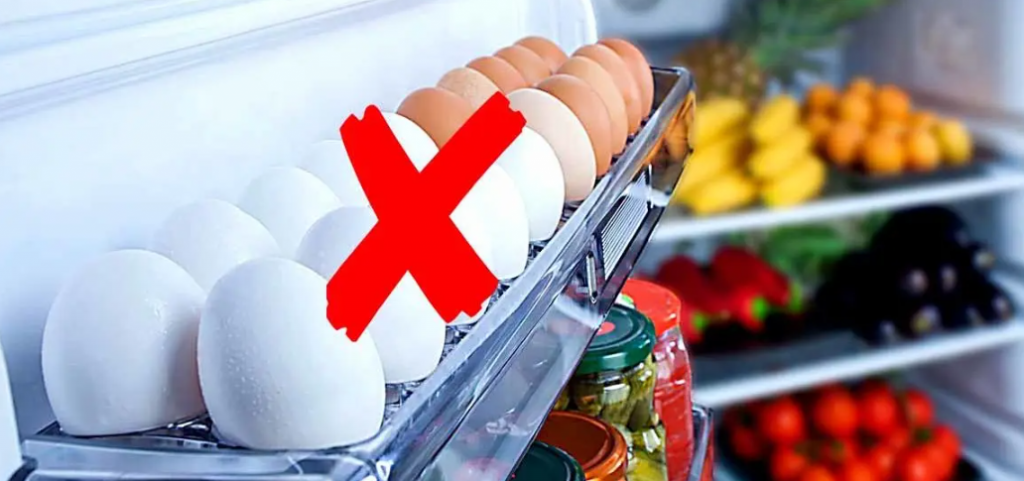Most of us are used to storing eggs in the refrigerator door — after all, that’s where manufacturers often provide special compartments. It’s convenient: they’re always at hand, don’t take up much space on the shelves, and look like they were meant to be put there. However, this can be a huge mistake that will negatively affect the quality of your food and even your health. Here’s why experts don’t recommend storing eggs in the refrigerator door.

- Temperature fluctuations are the main enemy of freshness
The refrigerator is constantly opening and closing, which leads to changes in the temperature inside the door. Each opening creates a “heat stroke,” especially on warm days. Such temperature changes can accelerate the spoilage of eggs. The fact is that although the shell seems strong, it is porous, and bacteria can easily penetrate inside when storage conditions change. The inside of the refrigerator, on the contrary, provides a more stable temperature, which helps keep the product fresh longer. - Eggs can absorb odors and moisture
Eggs have a porous shell that can allow odors and moisture to penetrate. The refrigerator door is where food is often exposed to humidity and drafts. This can cause eggs to acquire an unpleasant taste or even become dangerous to eat. To avoid this, store eggs away from sources of moisture and odors. - Reduced food safety
Violation of the temperature regime is not only a problem of freshness, but also a food safety issue. Eggs can contain bacteria such as salmonella, which multiply when stored improperly. Storing eggs in the refrigerator door, where the temperature is less stable, increases the risk of contamination. Salmonella can cause severe food poisoning, making this issue not just a matter of taste, but a real health hazard. - The danger of breaking and damaging eggs
The refrigerator door is constantly exposed to movement. Every time you open and close your eggs, they may bump into each other or the sides of the container. This increases the risk of cracks in the shell, which can introduce bacteria into the egg. Such damage often goes unnoticed, which creates an additional risk when eating spoiled eggs.
How to store eggs properly?
The best place to store eggs is the central shelves of the refrigerator, where the temperature is most stable and lower than in the door. If your refrigerator has a separate container for eggs, it is better to use it or place the eggs in a closed container to protect them from odors and moisture. Store them in the cardboard box they were bought in to minimize exposure to external factors.

The bottom line
Don’t be fooled by the convenience of the refrigerator door – this is not a suitable place to store eggs. If you want your eggs to stay fresh and safe to eat, move them to the shelves of the refrigerator and avoid temperature changes. Your health and the taste of your dishes directly depend on the correct storage of food!
